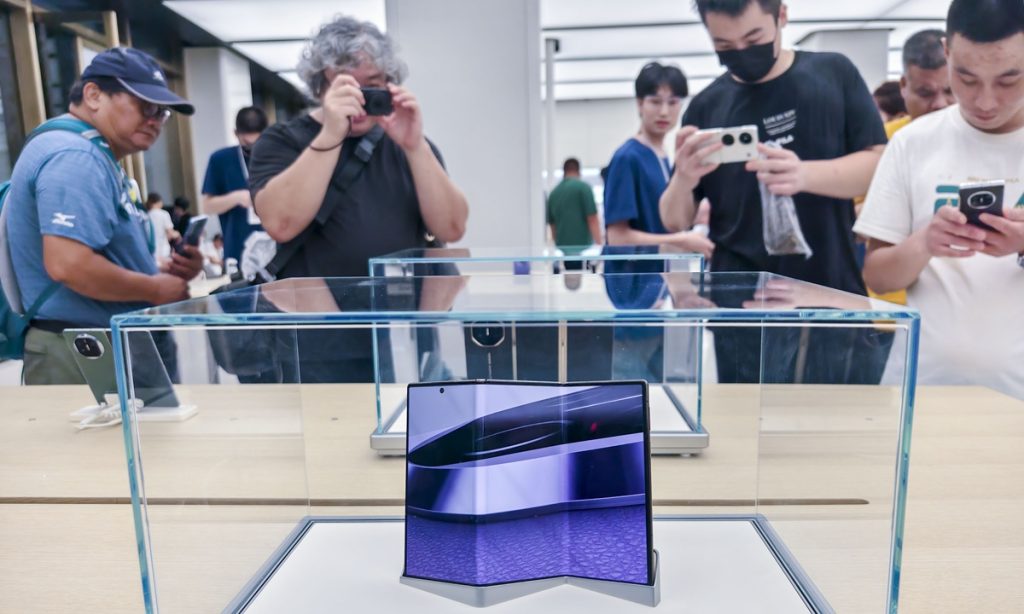Huawei, Apple debut new products on the same day; Chinese smartphone manufacturers chase high-tech, innovation

Huawei launched its new product - a triple-fold smartphone - on Tuesday, just hours after the release of Apple's artificial intelligence (AI)-boosted iPhone 16, which sparked wide discussion about the technologies behind the two tech giants.
Analysts said that Huawei's debut of the new phone, following a string of successful smartphone launches, highlights its ability to weather the US sanctions. In recent years, Huawei has not given up innovation in science and technology.
This shows the resilience and determination of Chinese high-tech companies to innovate independently in the face of external pressure. Meanwhile, other Chinese smartphone manufacturers are catching up in technologies and innovations, analysts noted.
Richard Yu, chairman of Huawei's consumer business, said on Tuesday during the launch event that it took Huawei about five years to develop the world's first triple-fold smartphone, which is also the largest and thinnest foldable handset in the world.
As of Tuesday afternoon, pre-orders for Huawei's triple-fold smartphone - Huawei Mate XT - had surpassed 4 million units since it became available online Saturday, showing market confidence and expectations for the new tech device, whose base model starts at 19,999 yuan ($2,814).
Both Huawei and Apple smartphones are due to go on sale on September 20.
"Apple's annual release of new products is always a hot moment in the industry, although the iPhone 16 has made no major technological breakthroughs, whereas Huawei released the world's first ever triple-fold mobile phone, achieving a breakthrough in the industry," Xiang Ligang, director-general of the Beijing-based Information Consumption Alliance, told the Global Times on Tuesday.
Apple shares on NASDAQ fell more than 1 percent during the launch event - though ended 0.04 percent higher on Monday US time - reflecting market skepticism about its AI-centric products, which analysts said is Apple's new focus - AI-driven software upgrades instead of hardware modifications.
Such efforts are meant to encourage users to purchase Apple's new devices, industry insiders said.
In the second quarter, Apple was edged out of the top five smartphone vendors in China, as competition from Chinese brands intensified, according to a report released by research firm IDC.
"Apple has occupied a dominant position in the global high-end market, and other domestic brands are also committed to breaking through to the high-end market, but they are still unable to compete with Apple," said Xiang.
Smartphones are anticipated to emerge as a key arena in the new wave of AI competition, Wang Peng, an associate research fellow at the Beijing Academy of Social Sciences, told the Global Times on Tuesday.